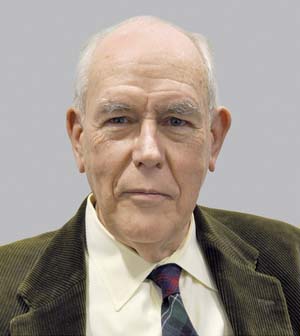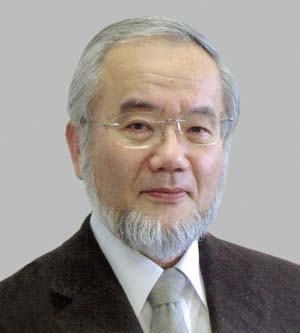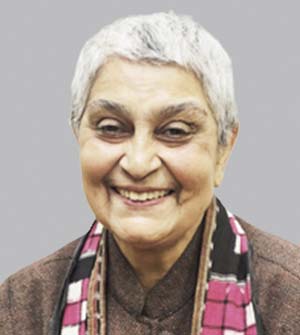Kyoto Prize 2012: Inamori Foundation announces this year’s laureates
Award honours groundbreaking contributions to science and culture
22 June 2012
Kyoto/Neuss – The Kyoto Prize, alongside the Nobel Prize one of the world’s highest honours for the lifetime work of outstanding personalities in culture and science, will be awarded this year to the Computer Scientist Dr. Ivan Edward Sutherland, the Molecular Cell Biologist Dr. Yoshinori Ohsumi and Professor Gayatri Chakravorty Spivak, Literary Critic and Educator. Each worth 50 million yen (some €500,000/ £404,000), the honours are awarded every year by the Inamori Foundation, which was initiated in 1984 by Dr. Kazuo Inamori, founder of the Japanese technology corporation Kyocera.
With its Kyoto Prize, the Inamori Foundation pays tribute to the lifetime’s work of personalities who have excelled in their fields with outstanding achievements. The presentation ceremony will be held in Kyoto on 10 November 2012.
The Kyoto Prize Laureates 2012
The Committee awards the Kyoto-Prize in the categories “Advanced Technology”, “Basic Sciences” and “Arts and Philosophy”. This year laureates are honored in the related prize fields of “Information Science”, “Life Sciences” and “Thought and Ethics” respectively.
Dr. Ivan Edward Sutherland (* 16 May 1938, U.S.A.)
Dr. Ivan Edward Sutherland, an American computer scientist, receives the Kyoto Prize in Advanced Technology in the prize field of information science. Dr. Sutherland has been responsible for many pioneering advances and fundamental contributions to the computer graphics technology used for information presentation, as well as the interactive interfaces that allow people to utilize computers without the need for programming. Most computer graphics in use today can trace their origins back to “Sketchpad,” which was developed by Dr. Sutherland in 1963. Allowing the user to directly manipulate figures on a screen through a pointing device, its interactive interface was years ahead of its time. Today’s computer-aided design (CAD) system is a highly-influential descendent of this innovative program.
Dr. Yoshinori Ohsumi (* 9 February 1945, Japan)
The Inamori Foundation awards the Kyoto Prize in Basic Sciences to Dr. Yoshinori Ohsumi in the prize field of Life Sciences. The Molecular Cell Biologist has made groundbreaking contributions to science in his cellular genetic study of autophagy (also known as “cellular self-cannibalization”) in yeast. Autophagy was first proposed in the early 1960s and refers to a cellular process that degrades proteins in order to adapt to the nutritional environment and other factors. In 1992, Dr. Ohsumi was the first to demonstrate that autophagy could be induced in yeast. By following this observation, Dr. Ohsumi then isolated a number of mutants in which autophagy is not induced even if proteases are inhibited and nutrients are depleted. Dr. Ohsumi’s contributions to this field deserve high recognition, as he has opened the door to elucidating the molecular mechanisms and physiological significance of autophagy. His findings enabled many researchers to reveal the broad physiological significance of autophagy in animals— namely, that autophagy is essential for neonates to adapt to the starvation state at birth; that autophagy is necessary to prevent neural cell death, as it hinders the accumulation of abnormal proteins in nerves; and that metabolic turnover via autophagy is vital to the maintenance of myocardial contraction.
Professor Gayatri Chakravorty Spivak (* 24 February 1942, India)
An Indian intellectual Gayatri Chakravorty Spivak is awarded the Kyoto Prize in Arts and Philosophy in the prize field Thought and Ethics. Professor Spivak has shifted a critical theory of “deconstruction” into political and social dimensions and has applied a sharp scalpel to intellectual colonialism, which is being reproduced in our heavily globalized modern world. Her best-known work, “Can the Subaltern Speak?” discusses the “subalterns”—those who are economically dispossessed, forcibly marginalized and rendered without agency by their social status. The Professor teaches in the U.S.A. and attends discussions and gatherings around the world. She also pays periodic visits to her home state of West Bengal and works for literacy education in rural villages and translation of local literature in India and Bangladesh. She exemplifies what intellectuals today should be, through her theoretical work for the humanities based on comparative literature and her devotion to multifaceted educational activities.
The official press conference on the announcement of the laureates is available on the Inamori Foundation’s website: http://www.kyotoprize.org/en/.
About the Kyoto-Prize
This year’s Kyoto Prize is the 28th time that personalities who have made a particularly great contribution to the further development of the arts and sciences are being honoured. Among those who have received the prize in past years are the French composer Pierre Boulez, the German choreographer Pina Bausch, the philosopher Jürgen Habermas, the Japanese fashion designer Issey Miyake, the musician and conductor Nikolaus Harnoncourt, the artists Maurice Béjart and Roy Lichtenstein as well as the primatologist Jane Goodall.
Press Material
- Press Release (pdf) (152.33 KB)
- Press Photo (Dr. Ivan Edward Sutherland) (jpg) (385.63 KB)
- Press Photo (Dr. Yoshinori Ohsumi) (jpg) (350.36 KB)
- Press Photo (Professor Gayatri Chakravorty Spivak) (jpg) (254.75 KB)




